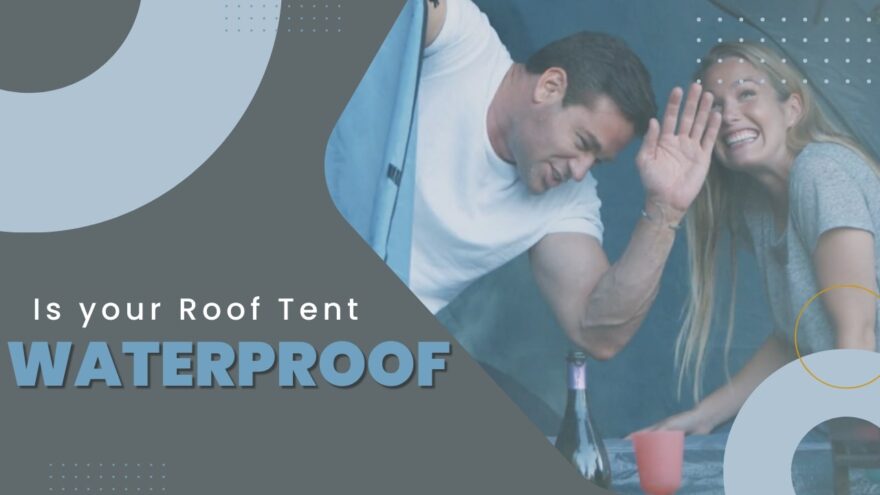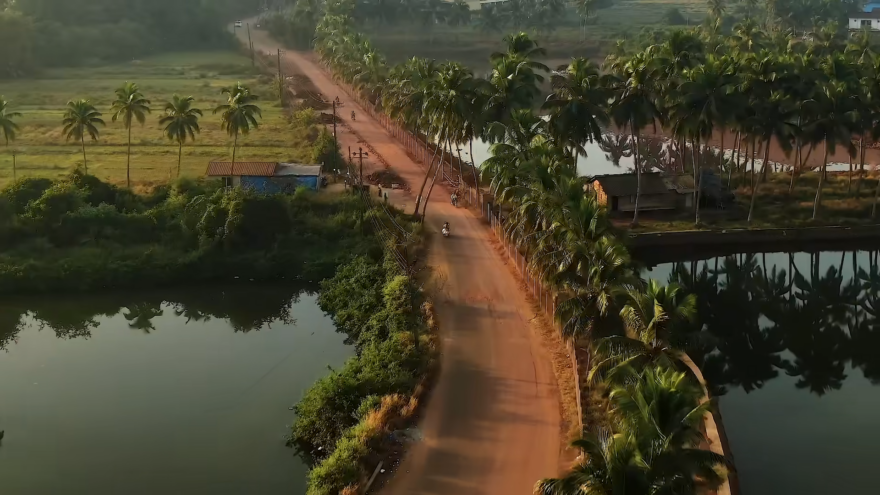Roof tents have gained popularity among outdoor enthusiasts due to their convenience and versatility. These portable shelters offer a unique camping experience, allowing you to sleep comfortably on top of your vehicle.
However, one crucial factor that determines the quality of a roof tent is its ability to keep you dry during unexpected downpours. In this article, we will explore how to tell if your roof tent is truly waterproof and discuss the steps you can take to ensure its optimal performance.
Picture this: you’re out in the wilderness, enjoying nature’s beauty, and suddenly, dark clouds gather in the sky. Rain starts pouring down, threatening to dampen your camping adventure.
In such situations, having a waterproof roof tent becomes essential to keep you protected from the elements. But how can you be sure that your roof tent will stand up to the challenge? Let’s delve into the key aspects you need to consider.
Understanding Roof Tents
Before we dive into waterproofing, let’s briefly understand what roof tents are. Roof tents are portable shelters designed to be mounted on the roof of your vehicle, allowing for easy setup and a comfortable camping experience.
They come in various styles, sizes, and materials, catering to different camping needs. Whether you’re an avid camper or a road trip enthusiast, a roof tent can be a game-changer for your outdoor adventures.
Importance of Waterproofing
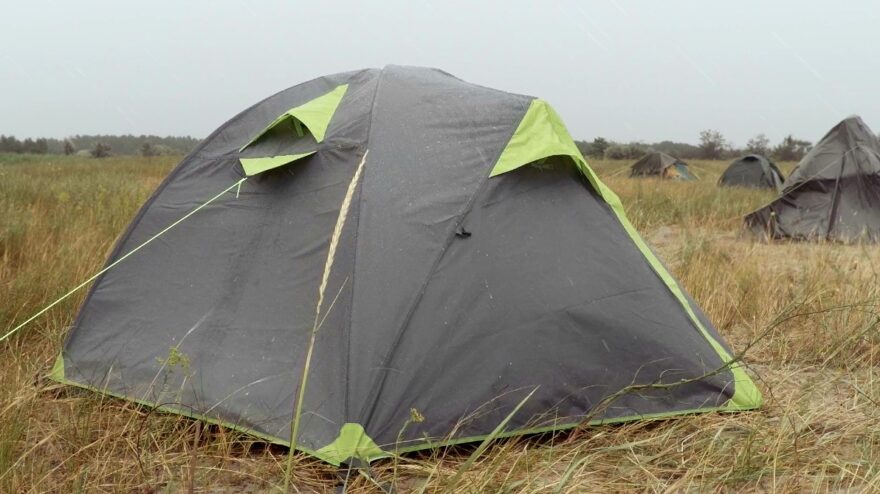
When it comes to camping, one of the worst things that can happen is waking up in a wet and leaky tent. This not only ruins the experience but also affects your sleep quality and overall comfort.
Therefore, ensuring that your roof tent is waterproof is of utmost importance. By keeping the rain out, a waterproof roof tent provides you with a dry and cosy space, allowing you to enjoy your camping trip regardless of the weather conditions.
Assessing the Waterproofing of Your Roof Tent
To determine if your roof tent is truly waterproof, you should assess several key elements. Here are some factors to consider:
Checking the Material Quality

The quality of the tent’s material plays a significant role in its waterproofing capabilities. High-quality materials such as durable ripstop nylon or polyester with a waterproof coating offer better protection against moisture. Ensure that your roof tent is made of a reliable and waterproof material to minimise the risk of leaks.
Evaluating the Stitching and Seams
Inspect the stitching and seams of your roof tent for any signs of weakness or damage. Well-constructed and reinforced stitching, along with sealed seams, enhances the tent’s waterproofing. Look for tight and even stitches, as loose or uneven stitching may compromise the tent’s ability to keep water out.
Examining the Zippers and Closures
Faulty zippers and closures can be a detrimental factor in the waterproofing of your roof tent. Check the zippers and closures for smooth operation and tight sealing. Ensure that the zippers have weather-resistant flaps or covers to prevent water from seeping through.
If you notice any signs of damage or difficulty in closing and opening, consider repairing or replacing them to maintain the tent’s waterproof integrity.
Testing the Rainfly or Flysheet
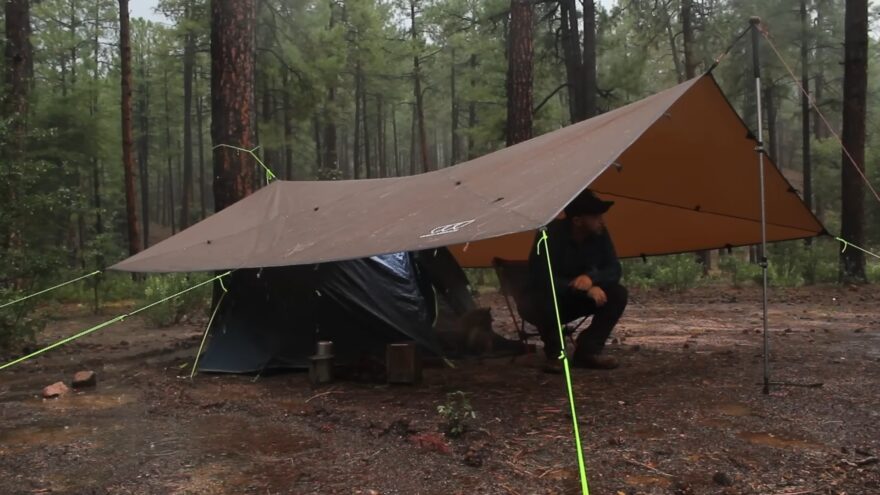
Many roof tents come with a rainfly or flysheet, which is an additional layer of waterproof fabric that provides extra protection against rain. Inspect the rainfly for any tears, holes, or signs of wear and tear.
Make sure it covers the entire roof tent and extends beyond the edges to divert rainwater away from the tent’s main body. The rainfly should be securely attached and provide a tight fit to prevent water from penetrating the tent.
Conducting a Water Test
One effective way to determine the waterproofing of your roof tent is by conducting a water test. Set up your roof tent in a controlled environment, such as your backyard or a garage, and simulate rainfall using a hose or a sprinkler.
Observe how the tent performs under simulated rainy conditions. Pay attention to any areas where water may be seeping in, such as seams, zippers, or corners. This test will give you a clear idea of the tent’s waterproofing capabilities and help identify any areas that require attention or maintenance.
Regular Maintenance for Waterproofing
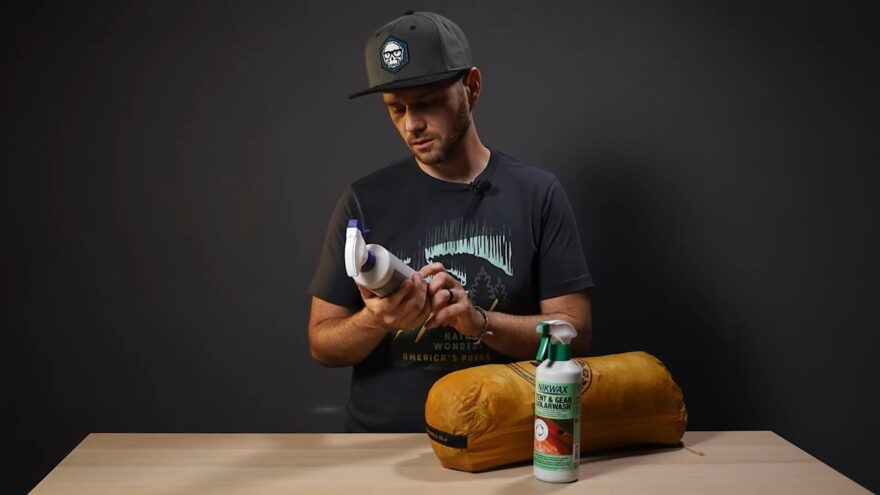
To ensure that your roof tent remains waterproof over time, regular maintenance is essential. Here are some maintenance tips to keep your roof tent in top-notch condition:
Cleaning and Drying
After each camping trip, clean your roof tent thoroughly to remove dirt, debris, and any potential contaminants. Use a mild detergent and a soft brush to gently scrub the tent’s surface. Rinse it thoroughly and allow it to air dry before storing it. Avoid using harsh chemicals or abrasive cleaning agents as they may damage the tent’s waterproof coating.
Applying Waterproofing Products
Over time, the waterproof coating on your roof tent may wear off or degrade. To restore and enhance its waterproofing capabilities, consider applying a waterproofing product specifically designed for tent fabrics.
Follow the manufacturer’s instructions carefully and apply the product evenly on the tent’s surface. This will help rejuvenate the waterproof coating and extend the lifespan of your roof tent.
Common Mistakes to Avoid
When assessing the waterproofing of your roof tent, there are a few common mistakes that you should avoid:
- Neglecting regular inspections: Regularly inspect your roof tent for any signs of damage, wear, or compromised waterproofing. This proactive approach can help you catch issues early on and prevent further damage.
- Overlooking maintenance: Proper maintenance is key to preserving the waterproofing of your roof tent. Neglecting regular cleaning, drying, and applying waterproofing products can lead to a decrease in its effectiveness.
- Ignoring repair needs: If you notice any leaks, tears, or damage to your roof tent, address them promptly. Ignoring repair needs can worsen the situation and compromise the overall waterproofing of the tent.

Benefits of a Waterproof Roof Tent
Investing in a waterproof roof tent offers numerous benefits for your outdoor adventures:
- Weather protection: A waterproof roof tent ensures that you stay dry and comfortable even during heavy rainfall or inclement weather conditions.
- Extended usability: With a waterproof roof tent, you can camp year-round without worrying about moisture seeping into your sleeping space.
- Peace of mind: Knowing that your roof tent is waterproof provides peace of mind, allowing you to fully enjoy your camping experience without concerns about leaks or dampness.
Conclusion
In conclusion, having a waterproof roof tent is crucial for a successful and enjoyable camping trip. By assessing the material quality, stitching, seams, zippers, closures, and rainfly, you can determine the waterproofing capabilities of your roof tent.
Conducting a water test and performing regular maintenance, such as cleaning, drying, and applying waterproofing products, will help ensure the longevity of your tent’s waterproofing. Avoid common mistakes like neglecting inspections, maintenance, and repairs to maintain optimal performance.
Investing in a waterproof roof tent provides you with the peace of mind and comfort you need to fully enjoy your outdoor adventures. You can invest in a waterproof roof tent at Outdoor Roadie.
With protection against the elements, extended usability throughout the year, and the confidence of a dry and cosy sleeping space, you can embrace the beauty of nature without worrying about leaks or dampness.
FAQs
How long does a roof tent stay waterproof?
The waterproofing of a roof tent can vary depending on its quality and usage. With proper maintenance and regular inspections, a high-quality roof tent can maintain its waterproofing for several years.
Can I repair a leaky roof tent myself?
Minor repairs like patching small holes or fixing loose seams can often be done by yourself using repair kits available on the market. However, for major repairs or extensive damage, it’s advisable to consult a professional.
Are all roof tents waterproof?
Not all roof tents are inherently waterproof. The waterproofing capability depends on the materials used, construction quality, and additional features like rain flies. It’s essential to choose a roof tent specifically designed to be waterproof or take necessary steps to enhance its waterproofing.
Should I buy a roof tent with a built-in rainfly?
A roof tent with a built-in rainfly offers added convenience and ensures better waterproofing. It provides an extra layer of protection and eliminates the need for separate rainfly setup.
Can I use a waterproofing spray for my roof tent?
Yes, you can use waterproofing sprays or treatments specifically designed for tent fabrics. Follow the instructions provided by the manufacturer to effectively enhance the waterproofing of your roof tent.
Related Posts:
- How To Waterproof Canvas Tent - Don't Let Rain Ruin…
- How To Tent With Foil [2024 Guide] - Methods to Make…
- Top 5 Fishing Spots Around the World You Don’t Want to Miss
- Top 10 Best Camping Lighter 2024 - Windproof &…
- Is a Mr. Buddy Heater in a Tent Safe - Stay Warm and Safe
- 10 Best Solar Powered Tent Heaters 2024 - Keep it Warm

